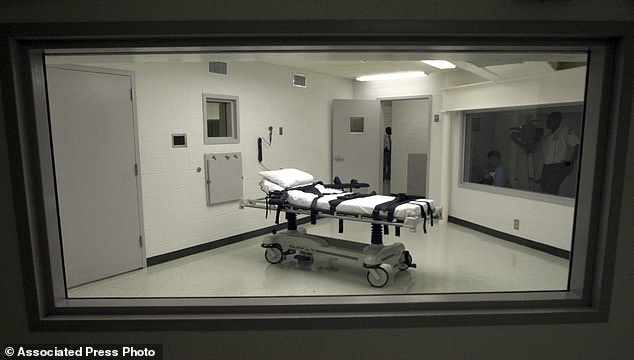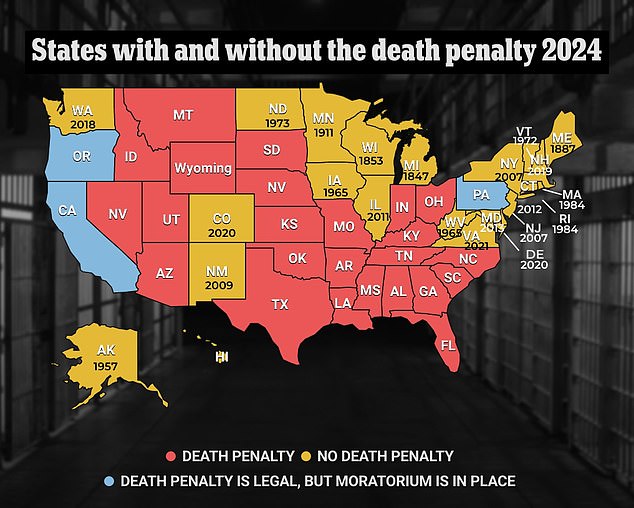Muslim death row inmate makes unusual request for after his execution in Alabama
An Alabama death row inmate scheduled for execution next week has asked the state not to perform an autopsy on his body because of his devout Muslim faith.
Keith Edmund Gavin, 64, was convicted of first-degree murder for the March 1998 shooting death of deliveryman William Clinton Clayton Jr. when he stopped to withdraw money from an ATM. Seattle Times reported.
Gavin will die by lethal injection, the primary execution method in the southern state, in an execution scheduled to take place at the William C. Holman Correction Facility outside Atmore between midnight Wednesday, July 17, and 6 a.m. Friday, July 19, Gov. Kay Ivey’s office said.
Although it is customary in the state of Alabama to perform an autopsy after an execution, Gavin has requested through his attorney that the procedure be banned after his death for religious reasons.
On Tuesday, William Califf, a spokesman for Alabama Attorney General Steve Marshall, said they were “working on a resolution,” the news outlet reported.
Keith Edmund Gavin, 64, is expected to die by lethal injection on or about July 18

Alabama’s lethal injection chamber at Holman Correctional Facility in Atmore is seen in this October 7, 2002, photo.
“Mr. Gavin is a devout Muslim. His religion teaches that the human body is a sacred temple that must be preserved intact,” his lawyers wrote.
‘Therefore, Mr. Gavin sincerely believes that an autopsy would desecrate his body and violate the sanctity of keeping his human body intact.
‘Based on his faith, Mr. Gavin is strongly opposed to an autopsy on his body after his execution.’
Last month, Gavin’s attorneys filed a lawsuit in Montgomery County Court after they were unable to meet with state officials to grant his request ahead of his execution, which will be the third execution in the state this year.
According to the news outlet, they explained that the legal proceedings were not an attempt to stop the execution of their clients.

William C. Holman Correction Facility where the execution will take place
Gavin’s victim Clayton Jr. worked as a contract courier for Corporate Express Delivery Systems before he was murdered in 1998.
After Clayton Jr. finished his daily grocery shopping on March 6 of that year, he went to the bank to get money to take his wife out to dinner, Atmore News reported.
However, he would never come home again.
Clayton Jr. was fatally shot while sitting in his van outside the Regions Bank in downtown Centre.
According to court documents, Gavin had previously been convicted of murder and attempted murder for shooting a police officer, leading to two counts of first-degree murder. CBS News Previously reported.
A jury voted 10-2 in favor of Gavin’s death penalty and sentenced him to death.

As of January 2024, there are 24 states that have the death penalty and 23 that do not — while another three states have a moratorium on it
The death penalty is normally only used for particularly serious crimes in which the victim is killed. However, each state can determine under which specific circumstances a murder qualifies for the death penalty.
According to the Death Penalty Information Center, as of January 2024, there were 24 states that had the death penalty, 23 that did not, and three that had a moratorium.
Last year, there were 24 executions in the United States, all carried out by lethal injection.
Of the nine executions scheduled to take place in 2024, one was carried out using the new, controversial method: death by nitrogen hypoxia.
